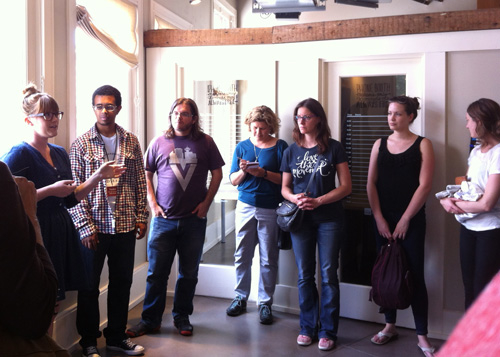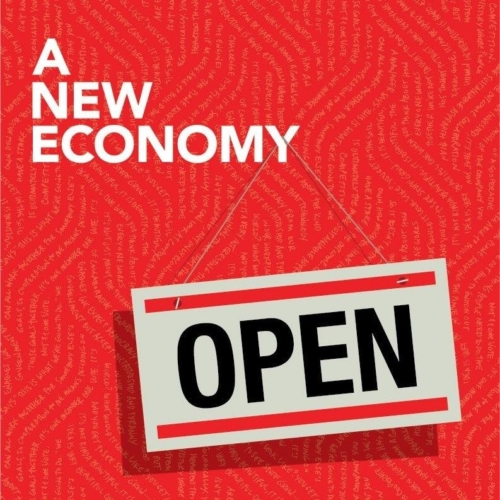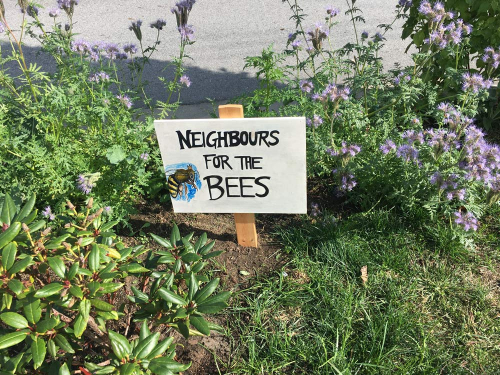Talking trash: Projecting Change Film Fest opens May 26, and plastic is a Texas-sized problem
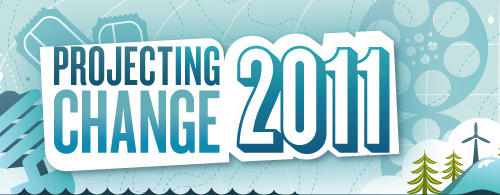
You might expect a film about a Vancouver couple who spend a year almost zero-waste and without buying any stuff to be a tale of unimaginable hardship and sacrifice. Indeed, the prospects of using the same toothbrush for 365 days, not replacing worn-out clothing, or making crackers from scratch are daunting but The Clean Bin Project‘s Jen and Grant take a delighted, energetic approach akin to Alisa Smith and J.B. MacKinnon’s The 100-Mile Diet, but on the screen. The project was for them a competition for who could produce the least amount of garbage by year’s end (I won’t tell you who won), and involved learning about plastics, asking for their cheese unwrapped in their reusable container, and making the most of an old razor. Their enthusiasm was infectious. The 76-minute film is merely a glimpse at an entire year, but if it suggests anything about the 525,600 minutes they spent saving the planet, I think they enjoyed most of them.
Their artistically delicious film intersperses their own narrative of discovery — and occasional humourous disappointment — with the broader view of our consumption-based lifestyle and its consequences: successful community recycling initiatives; the Pacific Garbage Patch (which is twice the size of Texas); albatross death by plastic; landfills; and incomprehensibly large volumes of disposable stuff as depicted by Seattle artist Chris Jordan.
I loved this film so much, I attended both of its Vancouver screenings last year (and I wasn’t the only repeat viewer). If you missed it last May or last fall, you have two opportunities (to see it twice, even!), next weekend at the Projecting Change Film Festival. There’s a great lineup of films on social and environmental change, so go check it out. Also, look for the festival coupon in your Green Zebra coupon book.
Now here’s your round-up from around the web
Jamaican students figured out how to make a biodegradable plastic from fish scales, a natural source that is thrown out on a daily basis without second thought. With so much garbage in the ocean and not enough fish, what if we paid fishermen to catch plastic trash?
Water woes for land lubbers
Climate change will make water shortages worse — and probably give Vancouver more rain in our wetter season. (If you didn’t notice how much it rained from November to May here, you live under a rock. Unusually wet May, third coldest April on record, etc.) We’ll witness desert communities become unlivable when they can no longer water their people let alone their lawns and golf courses. Unfortunately, I’m not too fond of this idea for producing more drinking water via desalination of ocean water.
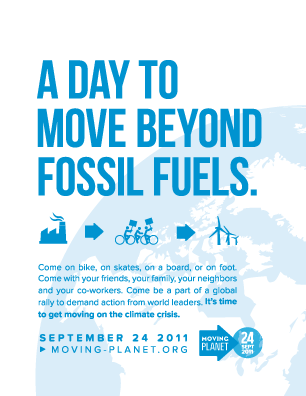
Big oil = big payouts
Texas thinks economic stimulus in the form of wealthy peoples’ car racing is more important than educating its citizens. Teachers disagree. Speaking of taxpayer dollars going disproportionately into deeper pockets, Canadian and American governments are subsidizing Big Oil with billions per year. That’s just not right. On September 24th, join supporters of 350.org and stand up for solutions to climate change and alternatives to fossil fuels. Think the October 24, 2009 Day of Action but bigger.
Maybe we should think about driving less?
Writes Michael J. Graetz in the L.A. Times, “The United States has 4% of the world’s population, but we consume 25% of the world’s oil. … automobile fuel efficiency standards have reduced somewhat U.S. oil consumption, but in an unnecessarily costly manner, and they do nothing to reduce the miles we drive. Economists have estimated that a gasoline tax of just 25 cents a gallon would have saved as much oil as these fuel efficiency standards at one-third the cost to the economy.” According to Environics research, the majority of Canadians polled about their support for a carbon tax in their province supported the idea, with British Columbians also supporting in the majority the carbon tax the province instituted a few years ago. This support is maintained despite rising costs at the pump.
Echoing James Howard Kunstler a few years ago, a top economist says the world passed peak oil in 2006.
BC Busines asks: is it time to start paying user tolls for road usage?
Cheers for Vancouver
Vancouver’s Olympic Village demonstrates technology that allows buildings to “eat smog”. And The Vancouver Observer makes observations about new uses for unused/underused parking lots. Hear, hear! Hello, 60 W Cordova.
Data crunching, energy munching
Greenpeace ranked the energy demands of data centres, so next time you’re thinking about with whom you should cloud compute, or whether you ought to at all, consider this list, and badger your poor-performing favourites to get better. (Sorry, Apple. You’re doing well in other ways.)
This $*&% is bananas and its footprint is…
Speaking of fruit, I eat bananas and cocoa with a certain amount of guilt. But if I’m grocery shopping on my own, I won’t buy anything that can be grown here when it’s out of season. A new book, How Bad Are Bananas measures the carbon footprint of everything. Might I point out that according to a booklet I acquired from Coast Paper, air freight is the worst offender, and trains are pretty much your best bet for bulk. I hope my raw milk cheese from Quebec arrives here on a train. It makes me envy my sister who only has a short drive to get fresh raw cheddar from a biodynamic farm. It’s too bad the roads there aren’t safe for cyclists — or pheasants, for that matter!
Upcoming events… okay, they’re all for cyclists
VACC’s Bike to Work Week is May 30 – June 5
MEC Bikefest (Canada-wide through June)
Velopalooza in Vancouver, June 3 – 19
Found one for not just cyclists: De-Growth Vancouver conference, June 3 – 4

